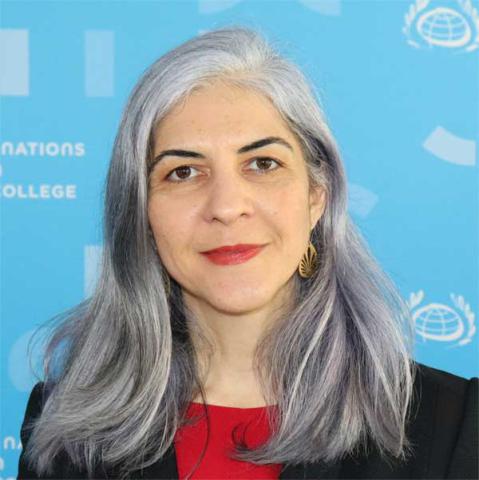Advancing strategic competencies for UN development leadership
The global context for the 2030 Agenda has become increasingly challenging. The Global Sustainable Development Report 2025 notes that the world remains “far off track from achieving the 2030 Agenda” and progress is described as “real and substantial, but fragile and unequal”. These trends reinforce the need for strengthened leadership capabilities across the United Nations (UN), particularly as the organization advances reforms outlined in UN General Assembly (UNGA) Resolution 72/279 and the broader repositioning of the UN development system.
Technical expertise alone is no longer sufficient; sustainable development is influenced by political, economic and environmental forces that interact in complex ways. Political acumen, strategic foresight and effective negotiation skills are essential to meeting these demands and aligning UN support with the 2030 Agenda and evolving reform priorities. In many country contexts, the ability to interpret competing interests and anticipate rapid shifts has become as important as sectoral expertise, especially as UN teams work in volatile and rapidly evolving environments.
In response to these needs, UNSSC has developed a learning offer dedicated to navigating complexity, aimed at strengthening the political astuteness and decision-making ability of UN leaders and enabling them to support Member States effectively amid uncertainty.
Political acumen and political economy analysis
Political acumen remains fundamental to the development of leadership. It enables leaders to interpret institutional dynamics, understand how incentives shape decision-making, and recognize how power relations influence the feasibility of reforms. Political economy analysis provides a structured way to do this. It involves examining stakeholders and institutional landscapes to understand how context shapes development outcomes. Tools such as stakeholder mapping, power and interest analysis and institutional landscape assessments help leaders identify the constraints and opportunities that affect programme delivery and policy reform.
Embedding political economy insights into strategy ensures that sustainable development outcomes are prioritized and implemented in national and regional contexts. This approach strengthens integrated SDG implementation by helping UN teams align their support with governance conditions and by improving the quality of national engagement strategies. These competencies reinforce national ownership and help UN leaders identify practical entry points for reform, even in fluid or sensitive contexts.
From analysis to action: influencing, negotiation and decision-making
Moving from contextual understanding to strategic action is central to impact. Once political and institutional dynamics are understood, UN leaders must be able to influence policy, support coalitions and facilitate consensus across diverse actors. Leadership in this area requires the ability to bridge interests, frame options clearly and support constructive decision-making in complex contexts. The Dag Hammarskjold Foundation emphasizes that influencing and convening capabilities are core components of modern UN leadership. These skills allow leaders to navigate competing pressures while maintaining strategic clarity and reinforcing trust with national partners.
Negotiation is also critical to achieving shared outcomes. Multistakeholder processes often depend on negotiation frameworks that enable actors to articulate interests, reconcile tradeoffs and commit to collective action. Analyses conducted by the Organisation for Economic Co-operation and Development (OECD) highlight that negotiation structures play an important role in securing durable results in high stakes settings. For UN country teams, these competencies are essential to supporting Member States, guiding interagency coordination and strengthening the role of Resident Coordinators in collective decision making (UNGA, 2018; United Nations, 2025).
Strategic foresight, feedback and measuring progress
Strategic foresight has become an important tool in UN development practice. It helps identify emerging risks, explore alternative trajectories and anticipate shifts that may affect policy coherence. A policy brief by the United Nations Development Programme (UNDP) on anticipatory governance illustrates how futures analysis can strengthen national planning and institutional resilience. Within the programme, foresight is approached as an applied competency that enables personnel to incorporate long-term thinking into programming and policy.
Equally important is the integration of feedback and learning mechanisms into UN programming. Adaptive approaches require systems for collecting evidence, assessing progress and adjusting strategies in response to new information. Monitoring and evaluation frameworks that track influence, systems change and resilience outcomes help ensure that strategies remain relevant even as conditions shift. Strengthening these approaches supports more coherent, risk aware and forward-looking development planning and contributes to resilient partnership structures with national counterparts.
Supporting coherence across the UN system
Political economy analysis, negotiation skills and foresight support a more coherent UN presence by helping teams collaborate, anticipate risks and align assistance with national priorities and system reform, strengthening UN leaders through shared analytical foundations and tools that improve coordinated decision making across UN country teams. Courses such as UNSSC’s Navigating Complexity: Political Acumen and Strategic Negotiation for Sustainable Development build organizational capacity to operate amid uncertainty, equipping personnel to guide inclusive development. As 2030 approaches, the UN must deliver support that is analytically grounded, politically informed and collaborative, ensuring negotiation, foresight and political acumen reinforce effective partnerships and sustainable development progress.

